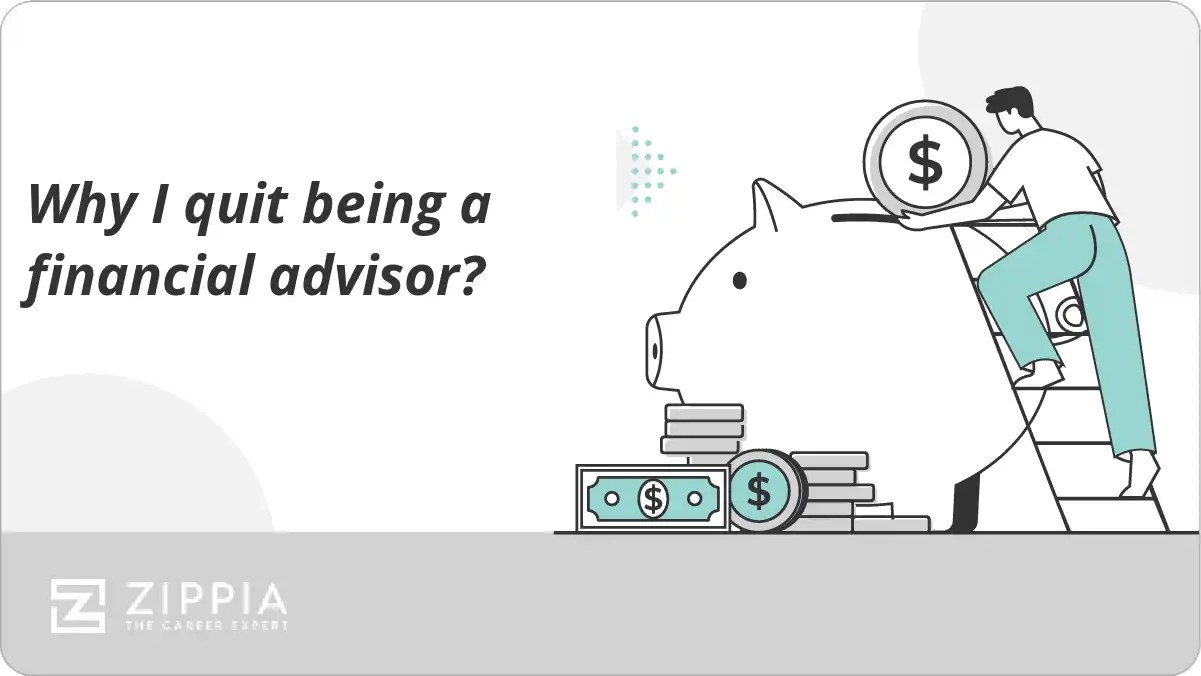FAQs
Pressure To Meet (Unrealistic) Targets And Burnout
While most advisors want to believe that they are doing this job because they love it, there are times when they feel forced into the situation and cannot get out of it. It is especially true for those with bosses who are always breathing down their necks.
Why do so many financial advisors fail? ›
A lot of failure within the financial advisor industry comes down to either not knowing or not practicing the fundamentals. For example, every financial advisor should prospect and follow up - that's a fundamental thing. However, when advisors don't prospect, they put themselves in danger of failing.
What percentage of financial advisors quit? ›
80-90% of financial advisors fail and close their firm within the first three years of business. This means only 10-20% of financial advisors are ultimately successful.
Why not become a financial advisor? ›
The benefits of becoming an advisor include unlimited earning potential, a flexible work schedule, and the ability to tailor one's practice. The drawbacks include high stress, the hard work needed to build a client base, and the ongoing need to meet regulatory requirements.
What do financial advisors struggle with most? ›
Financial advisors are most concerned about business development. Nearly 80% cite the challenge of finding “ideal” clients (Exhibit 1). While an “ideal” client will vary among financial advisors, sourcing them instead of less preferred clients is a big deal.
What are the disadvantages of becoming a financial advisor? ›
Cons of Being a Financial Advisor
Working hours are often long, particularly in the early stages of growing an advisor business. Constant interaction with others can make this career less attractive for individuals who are introverted. Starting an advisor practice can require a sizable amount of capital.
Is now a good time to become a financial advisor? ›
Despite some headwinds for consumers in 2023 – inflation and rising interest rates, to name a few, it IS still a good time to become a financial advisor. Some may even say it's the RIGHT time. Especially with the right firm.
How many clients does a financial advisor have on average? ›
The number of clients a financial advisor has depends largely on the advisor. Again, a typical client count is anywhere from 50 to 150 but there are several variables that can influence the actual number. They include the advisor's niche and the type of clients they serve, as well as how they work.
Are financial advisors a waste of money? ›
Hiring a financial advisor can seem like an unnecessary expense but they often save you money in the long run. If you choose to hire a financial advisor, make sure all their fees are transparent before you sign. A financial advisor is usually recommended when their fee is less than what they save for you.
Is there a future for financial advisor? ›
The future of financial advisory lies in the ability to build and maintain loyalty not just with the current generation of clients, but with their successors as well. This requires a shift in both mindset and practice as advisors begin embracing a more comprehensive approach to client engagement.
In fact, you'll receive a call from your new advisor and will need to decide whether or not to work with the team without the advisor you had. Your money remains in place, and if you choose to leave the team, you can just transfer your money to another advisor.
How many millionaires have a financial advisor? ›
The study reveals that 70% of millionaires work with a financial advisor, compared to just 37% of the general population. Moreover, over half (53%) of wealthy individuals consider their financial advisors their most trusted source of financial advice.
What do financial advisors struggle with? ›
The 5 Biggest Challenges Faced by Financial Advisors Today
- Managing Client Expectations. While managing a client's portfolio may be a very straightforward endeavour, managing their expectations can be much harder. ...
- Low Interest Rates. ...
- Staying in Touch. ...
- Managing Information. ...
- Emotional Engagement.
A typical financial advisor workweek spans a minimum of 40 hours, though some advisors may work more than that. There's no rule, however, dictating that you must work at least 40 hours a week in order to become a financial advisor.
Is 40 too old to become a financial advisor? ›
Transitioning to a career in financial advising at the age of 40 is a strategic move that holds numerous advantages. The journey showcases the importance of mindset, leveraging life experiences, and embracing the opportunities presented in the finance industry.
Are financial advisors declining? ›
In 2020, total advisor headcount growth increased just 0.1 percent to 291,696 advisors, according to Cerulli. Cerulli expects that by 2023, total advisor headcount will begin to decline and will continue to decline through at least the end of 2025 (the final year of Cerulli's projection).
How long does the average client stay with their financial advisor? ›
For instance – did you know that according to a study1 from Etrade Advisor Sales in 2019 – the average percentage of clients that leave during a given year is 20% within a year. And 25% within one-two years. Or - put another way - roughly one-fourth of new clients may leave within the first two years.
Are financial advisors being replaced? ›
AI financial planning is undoubtedly transforming the financial industry, and with it, the role of financial advisors. But rather than a complete replacement, AI will likely serve to supplement existing financial advice capabilities, accelerated by technology-driven solutions.
